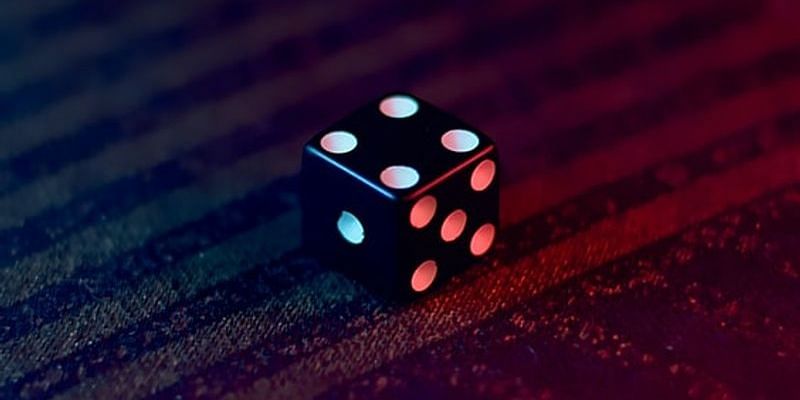When BlackLight Studio Games was formed in 2012, gaming wasn’t very popular in India either as a business or as a medium of entertainment.
Founder Shruti Sarraf, who started coding at the age of eight and later went on to build HTML5 games for Symbian browsers (during her stint at Spice Labs), bootstrapped the company from an out-house in South Delhi until 2014.
But very soon, she realised that hiring quality talent from an informal set-up was a major issue. So, BlackLight moved to an office space in Noida the same year.
“The ecosystem was still getting built in those days. Simple things like tracking user analytics, game performance, monetisation opportunities, hiring talent, etc. that are easy today, were not that straightforward back then,” Shruti tells YourStory.
BlackLight’s goal was to create classic games for the mobile, which was increasingly becoming the first-choice device for users.
BlackLight Games began with classic word games
It started with word games, primarily targeted at English-speaking territories like the US, the UK, Canada, and Australia that were also popular gaming markets.
The company released titles like Word Search, Word Alchemy, Word Shift, and Wordathon. “I enjoy playing word games myself and knew we could deliver amazing titles in it. Since we were bootstrapped, it was critical for us to become profitable early,” says the founder.
BlackLight’s “first major turning point” came with the success of its classic card game Solitaire (released in 2015). It became immensely popular not only in India but also in the US and Europe. The studio went on to release multiple versions of the game, including Solitaire Zen, Spider Solitaire, and Solitaire Live Challenge.
However, with the overall gaming ecosystem undergoing rapid changes, BlackLight had to change lanes too.
BlackLight Games co-founders Shruti Sarraf and Anupam Srivastav
The move to multiplayer games
Post-2016, with the surging adoption of low-cost but powerful smartphones and Jio’s affordable 4G connectivity, mobile gaming started to take off in a big way.
In 2017, India was ranked fifth globally by game downloads, and was poised to surpass countries like Russia and Brazil soon. (Three years later, in 2020, India became the second-largest casual gaming market in the world, trailing only China.)
BlackLight started shifting gears in 2017 after roping in Anupam Srivastav as a co-founder. Its goal was to create social multiplayer games that are culturally relevant to India, and offer interactive and community-driven experiences to users.
Anupam (Shruti’s ex-colleague from Spice Labs) came with more than 15 years of experience in building mobile apps and games, with wildly popular titles like Octro Teen Patti and Hangman to his name.
“Under Anupam’s supervision, BlackLight’s ideas have turned into reality. His product expertise has helped our games stand tall while competing with international gaming giants,” Shruti says of her co-founder.
As priorities changed, so did the gaming technology.
The studio’s first major success was a classic card game Solitaire in 2015
BlackLight developed an in-house authoritative multiplayer engine that could scale seamlessly as the user load increased. The startup claims its servers are strong enough to support over 50,000 concurrent players.
Shruti elaborates,
“To meet the growing appetite for mobile games, we have built a strong infrastructure, which provides reliable real-time multiplayer game experience to our players and helps us in tracking meaningful game analytics. One of the common challenges in ad-monetised multiplayer games is the cost of game servers. Our game servers are authoritative, cost-optimised, and scalable. And they are built as plug-and-play solutions that can be utilised in all our titles.”
BlackLight is keen on building games that are local and nostalgic for Indian players. “These games have typically been played by users in their childhood, and have no learning curve which makes them attractive to the masses. These games have higher retention rates as well,” explains the founder.
With the launch of Ludo SuperStar (multiplayer casual ludo game) in 2017, BlackLight hit gold. It has clocked more than 100 million downloads, and is the most successful title in the company’s portfolio. It is also the second most downloaded Ludo game in the world (after Ludo King), and counts over two million daily active users (DAUs).
BlackLight’s other popular titles include Carrom Superstar and Callbreak. Both launched in 2018 and have gained over 10 million downloads each.
BlackLight’s biggest success is Ludo SuperStar with over 100 million downloads
Growth and pandemic impact
Since 2018, BlackLight claims to have grown 10X in revenues. A majority of this has been driven by Ludo SuperStar, which continues to top app charts.
Overall, BlackLight’s games are played by three million users daily, with average sessions lasting 30 minutes. About 70 percent of its audience comes from India.
And 25 percent of the gamers are women. Shruti believes that the combination of “right content, right market, right time” has contributed to BlackLight’s growth.
“We aim to grow 5X by the end of 2022-23. We also plan to balance our revenue split between ad monetisation and in-app purchases, which would help increase life-time value (LTV) of our players and ensure a steady revenue stream,” she says.
Like most gaming startups, BlackLight witnessed positive growth in the pandemic.
Infographic: YS Design
Its daily installs increased by 350 percent; and usage of “Play with Friends” and “Play with Random Player” modes shot up by 450 percent and 1,100 percent respectively, mirroring the rise of social gaming in the lockdown.
“Socialising via gaming is an emerging trend in India. Social features connect gamers all over the world and make the game more interactive and engaging,” Shruti states.
In 2019, BlackLight was also selected in Indie Game Accelerator, and in 2020, it became a part of Google for Startups Accelerator (GFSA).
Shruti shares,
“GFSA has been a catalyst in our growth. During the programme, we were connected with some globally leading gaming companies, which once faced challenges similar to ours. We not only gained deep product and market insights but also got valuable advice from them.”
The startup has also grown its team size from 8 to 30, with new hires across roles such as product managers, tech leads, game design heads, and customer experience.
“We’ve been actively hiring for independent roles from different countries. Different cultural perspectives can inspire creativity and drive innovation,” Shruti says.
Social multiplayer games like Carrom SuperStar and Callbreak are other popular titles
Global expansion and future roadmap
BlackLight is embarking on its expansion to the Middle East and North America (MENA) region, which houses some of the world’s most active gaming communities.
These markets have high smartphone penetration and above-average disposable incomes, but limited entertainment avenues. That is what makes it an attractive destination for new-age gaming companies from India.
Shruti explains,
“To maintain a healthy revenue per user, we plan to expand to the MENA market, including Saudi Arabia, UAE, Qatar, Oman, and Turkey while maintaining a sizeable player base in India. This expansion will ensure a consistent flow of revenue, allowing us to invest more in creating new game titles and user acquisition.”
The startup continues to be bootstrapped even as online gaming gains VC interest.
“Investors are convinced about the potential of gaming in the Indian market. However, getting the right value from the right investor without losing flexibility is very important for us. We are more interested in a partnership where we can together make BlackLight grow multi-folds,” states the founder.
BlackLight’s team size has grown from eight to 30 since 2018.
Even though casual gaming saw tremendous growth in the pandemic, with India accounting for 17 percent of total game downloads in 2020, BlackLight believes that the industry’s dependence on advertising as a means of monetisation remains an issue “and is not likely to go away in the near future”.
India’s Average Revenue Per Paying User (ARPPU) for casual gaming was less than $2 in FY21, which is amongst the lowest in the world.
“The segment is significantly under indexed on monetisation with lower ARPUs as compared to the gaming markets such as Indonesia, Malaysia and South Africa, which are comparable [to India] in terms of the per capita GDPs,” KPMG said in a report.
However, with the maturity of the ecosystem and the emergence of local gaming studios that develop culturally relevant games, monetisation is likely to look up too.
BlackLight competes with the likes of Gametion Technologies, Octro, Gameberry Labs, MindYourLogic Studios, Nazara Technologies, and several others in a casual gaming market estimated to be worth Rs 169 billion by FY25.
Shruti sums up by saying, “Gaming has always been a hyper-competitive market. However, there lies a huge opportunity as there are billions of smartphone owners and all of them are potential gamers. This makes the market very exciting as well.”










